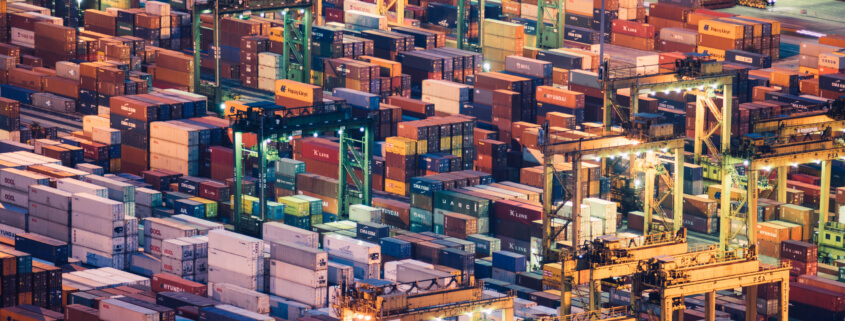For a more resilient multilateral trade system
Following the introduction of new wide-ranging US tariffs and in times of growing geopolitical tensions, the European Commission has tried to avoid further escalation of the current trade disputes. However, minimising damage from arbitrary and unexpected measures of international “partners” cannot be the answer to deep-rooted structural problems. Today, the international community has to find responses to the possible collapse of the multilateral trade system steered by the World Trade Organisation (WTO). The International Monetary Fund said that the current threats made by the US and its trading partners risked lowering global growth by as much as 0.5% by 2020, or about $430bn in lost GDP worldwide[1]. Despite the threats, CEC European Managers sees an opportunity for establishing a fairer and more sustainable multilateral trade system.
Looking back in history, world trade has increased almost exponentially over the last century, with some setbacks during the 1930ies, the recession in 2009 and a new wave of protective measures today. If the General Agreement on Tariffs and Trade (GATT) from 1947 and the creation of the WTO in 1995 have effectively contributed to reduce tariffs, non-tariff barriers to trade had already increased since the 1990ies[2]. While Trump imposed tariffs on solar panels, washing machines, steel and aluminium, China and the EU position themselves as defenders of free trade. Considering the challenges posed by climate change and the imperative to ensure peace in turbulent times, also through trade relations, a serious debate on how a better international trade system should look like is needed.
First of all, the international community has a sound long-term interest in defending and developing the multilateral trade system (for goods, services and increasingly data), along with other global governance systems (the IMF or the climate change regime for instance, also threatened by the US). Severe danger could emerge should the international WTO system, anchored on basic rules, collapse and no international body retain the authority to rule over trade conflicts. Only a more resilient multilateral trade system is able to respond to isolationist players seeking to destabilise others for short-term interests.
Second, trade can play an important role in maintaining global peace and combatting the sources of mass-migration. Agricultural export subsidies, domestic support and supply management in developed countries have led to production excesses and low prices, leading to negligible agricultural investments and lacking revenue in developing countries[3]. New opportunities through trade could offer a realistic pathway to these economies heavily relying on agriculture, if social and environmental standards are met. Furthermore, trade relations (besides professional mobility) and global institutions (such as the WTO) create links and interdependence between countries and people, thus preventing hostilities.
And third, well-functioning global markets could contribute to attain the sustainable development goals[4] by better integrating global value chains, sharing technological and organisational knowledge and facilitating investments in more sustainable business models. Eliminating damaging subsidies, agreeing on global social and environmental standards and reducing barriers (tariff and non-tariff) for trade in key sectors could thus accompany other global efforts for sustainable development.
Europe will have to play a key role in building a stronger multilateral system anchored on human rights, the rule of law and fair and sustainable trade. Maintaining the unity among EU member states for such an agenda will prove fundamental to attain better outcomes for all global trade participants. More than any other global power, the EU has the force and foundations to steer towards a renewal of the multilateral trade system.
European managers highlight the value of international trade to stimulate innovation, create jobs and improve well-being. Only by cooperating, learning from each other and competing fairly can trade partners mutually benefit from the exchanges. As in a company, trust and a positive vision are needed to steer forward.
[1] https://www.theguardian.com/business/2018/jul/16/imf-trump-trade-war-global-economy-us-tariff-weo
[2] https://voxeu.org/article/trade-barriers-beyond-tariffs-facts-and-challenges
[3] https://www.ictsd.org/sites/default/files/research/International%20Trade%20and%20Sustainable%20Development%20Post-2015%20Development%20Agenda%20Briefing%20Series.pdf
[4] Read more about international trade and sustainable development : https://www.ictsd.org/sites/default/files/research/International%20Trade%20and%20Sustainable%20Development%20Post-2015%20Development%20Agenda%20Briefing%20Series.pdf



